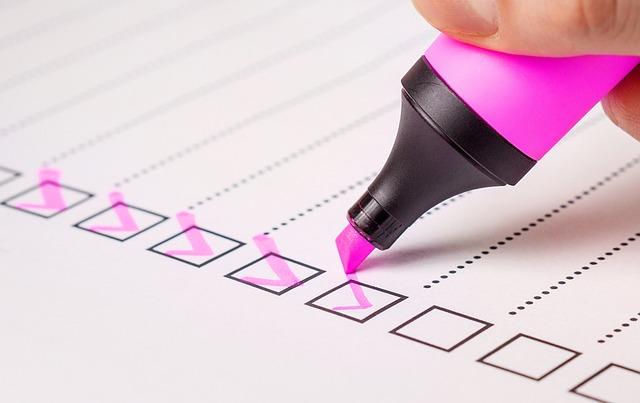In the digital age, where swipes and clicks often lead the way to romance, the quest for safety and authenticity has taken on new dimensions. As dating apps and online connections become the norm, a curious question emerges: ? This inquiry treads the fine line between precaution and invasion, reflecting a modern dilemma where trust meets technology. In this article, we delve into the nuances of this contemporary conundrum, exploring the balance between safeguarding one’s heart and respecting privacy in the ever-evolving landscape of love.
Navigating Privacy: Balancing Safety and Trust in Modern Dating
In the ever-evolving landscape of modern dating, privacy and safety are paramount. The idea of requesting a background check before a first date can be a double-edged sword. On one hand, it provides a sense of security and peace of mind, especially in a world where online interactions often precede face-to-face meetings. On the other hand, it may raise concerns about trust and privacy, potentially setting a tone of suspicion from the outset. So, how can one navigate this delicate balance?
- Open Communication: Discussing safety concerns openly can foster understanding and trust. It’s important to approach the topic with sensitivity, emphasizing mutual safety rather than suspicion.
- Alternative Measures: Consider less intrusive options such as meeting in public places, sharing your location with a friend, or conducting a brief video call beforehand.
- Mutual Agreement: If a background check feels necessary, ensure it is a mutual decision. This can help maintain respect and trust in the budding relationship.
Striking the right balance between safety and trust requires careful consideration and honest dialogue. By prioritizing both, individuals can navigate the modern dating scene with confidence and respect.

Understanding the Implications: Legal and Ethical Considerations
When considering the request for a background check before a date, both legal and ethical dimensions must be explored. Legally, performing a background check without consent can infringe on privacy rights, potentially leading to legal repercussions. It’s crucial to ensure that any background inquiry complies with applicable privacy laws, such as the Fair Credit Reporting Act in the United States, which governs how such checks can be conducted. Consent is key; obtaining explicit permission from the other party is not just a legal safeguard but also a gesture of respect.
On the ethical front, one must weigh the balance between personal safety and privacy. While some may argue that ensuring safety justifies a background check, others might view it as an invasion of privacy that undermines trust from the outset. Considerations include:
- Transparency: Clearly communicating the reasons for the request can foster understanding.
- Mutual Agreement: Engaging in a dialogue about comfort levels and boundaries.
- Empathy: Recognizing the other person’s perspective and potential discomfort.
Navigating these waters requires sensitivity, with an emphasis on mutual respect and clear communication.

Communicating Concerns: How to Approach the Conversation
When considering a delicate subject like requesting a background check, the way you initiate the conversation can set the tone for the entire interaction. Begin by expressing your intentions clearly and respectfully. You might say something like, “I really enjoy our conversations and am looking forward to meeting you. For peace of mind, would you be open to sharing some background information?” This approach emphasizes transparency and mutual respect.
- Be Honest: Clearly explain why you feel this step is important for you.
- Respect Privacy: Acknowledge their right to privacy and be prepared for any response.
- Stay Open-Minded: Understand that this request may surprise them, and be willing to listen to their perspective.
Remember, the goal is to foster trust and understanding, not to make the other person feel uncomfortable or defensive. It’s about finding common ground where both parties feel secure and valued.

Expert Advice: Best Practices for Ensuring a Safe First Meeting
In today’s digital age, ensuring safety during a first meeting is crucial. Here are some best practices from experts to help you feel more secure:
- Meet in a Public Place: Choose a well-lit, populated location for your first encounter. Cafes, parks, or restaurants are excellent options.
- Share Your Plans: Inform a friend or family member about your meeting details, including the time, location, and who you’re meeting.
- Trust Your Instincts: If something feels off, don’t hesitate to end the meeting. Your intuition is a powerful tool.
- Limit Personal Information: Avoid sharing too many personal details initially. Keep conversations light and general.
- Have an Exit Strategy: Plan how you’ll leave the meeting if necessary. Having your own transportation can be a key part of this strategy.
These steps can provide peace of mind and help create a safe environment for both parties. Remember, prioritizing safety is always appropriate and responsible.



